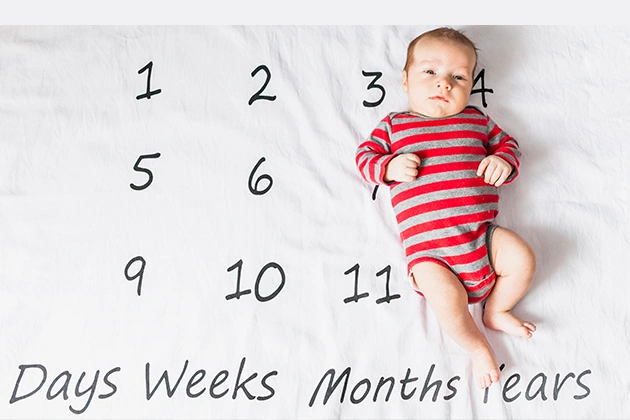Are you the absolute worst at remembering birthdays? Like, shoot, you struggle to remember yours sometimes, and it only registers when a friend or a loved one calls or sends you a birthday text. Well, good thing you’re not alone; so don’t be too hard on yourself. But what if you wanted to plan a surprise birthday party for someone you care about, or just want to be sure that their “supposed” date of birth matches what’s on paper?
There are ways to do that. The trick is knowing where to look and how to stay ethical while finding the person’s birthday. It’s even possible to run a search with the help of their address and find out the truth in no time when you don’t know a person’s name.
So, how then can you do so without going against privacy laws or using the wrong methods? Let’s find out.
When Knowing Someone’s Birth Dates Comes in Handy
Looking at the bigger picture, the date of birth is a fixed, chronological metric that helps you or anyone else determine someone’s age, and it’s generally used for identification and verification purposes across the board, some of which are:
- Informal background checks: if you’ve met someone who you find attractive online and you’re not sure they’re on the level, especially about their age, a quick background check would help confirm their claim.
- Family history and genealogy: if you’re nosing into your family history, which, let’s be honest, we’ve all done when we’re bored, public records detailing the dates of birth of everyone in your tree help paint a clearer picture of the past and what it led to.
- Legal or financial paperwork: sometimes, confirming someone’s birth date is just about preventing fraud or mix-ups with official documents.
Knowing your reason might lie in one of these, your best bet is to start with open-source and publicly available data, which brings us to the next part.
How to Check a Person’s Date of Birth
Now that we’ve taken a quick trip through the whys and whats, we can now get into the nitty-gritty of the different ways to look up someone’s birthday.
Public Records
Public records exist to track the important details of people’s lives, so they often include almost everything you need to know about a person, including their date of birth. What’s more, they’re “public”, meaning anyone can look them up, which makes them the go-to for learning information about people. They’re your typical voter registers, property deeds, marriage certificates, and court filings.
Some of these records show the exact information (month, day, and year of birth), while others give hints, like an age listed alongside a name. Either way, the clues add up to verify the individual’s claim. Accessing such records is usually straightforward. You can check with a county clerk’s office, look through local court databases, or browse state websites, often for free or less than the price of a Starbucks latte.
Social Media
You’d be surprised how often people reveal their birthdays on social platforms like Facebook, Instagram, and LinkedIn, sometimes without even realizing it. As a matter of fact, all you usually need is their names or profile handles to access such information. Even if their account is set to hide it, their friends might post a “Happy Birthday” message, tag them in a celebratory photo, or share a story that gives away the exact day, and even how old they are, which is just what you need to know precisely when they were born.
There are indirect clues as well. Think college graduation years, work anniversaries, and milestone celebrations, all of which provide helpful age markers. These bits of valuable data could come from them or someone else, perhaps their colleagues or boss.
Online Directories and Data Aggregators
People search sites like UnMask compile billions of public records (from property filings and business registrations to social media and more), which makes them another option worth considering. Given how robust their databases are, chances are you’d find information regarding someone’s approximate or full date of birth, depending on how the data is listed in official documents. And the best part? You get the results in a simple report for a small fee (less than the price of a cup of coffee), saving you time and effort.
If your search leans towards running a comprehensive background check, these tools can also handle it. Beyond birth dates, they provide personal information like associated addresses, relatives, known aliases, and even possible criminal records, with which you can make an informed decision.
Genealogy and Family History Websites
Genealogy websites are a favorite resource for anyone curious about where a person comes from or how they fit into a family story, which, of course, you’d find valuable if you’re unsure about their origin. If you’ve ever wandered onto Ancestry.com or FamilySearch.org, you already know how easy it is to fall down the rabbit hole. These platforms hold everything from dusty census entries to birth certificates that were typed up long before the internet came to be.
A simple search on either site can reveal a birth year, a hometown, or an entire family line you never knew existed. You start with a name, plug in a city, add a relative or two, and voila! You’re staring at a scanned image of a document that has been sitting in a county archive for decades. Honestly, it feels like detective work, only without you having to leave your couch. If the record is there, you will find it.
Conclusion
Finding someone’s date of birth is possible and often perfectly legal when done through proper channels, such as those covered in this guide. These methods are just what they are: tools. What truly defines their ethics is your intent. In other words, what and how you choose to use them. So whether you’re hiring, renting, or simply just getting to know someone, do well to ask questions fairly while you look them up.










